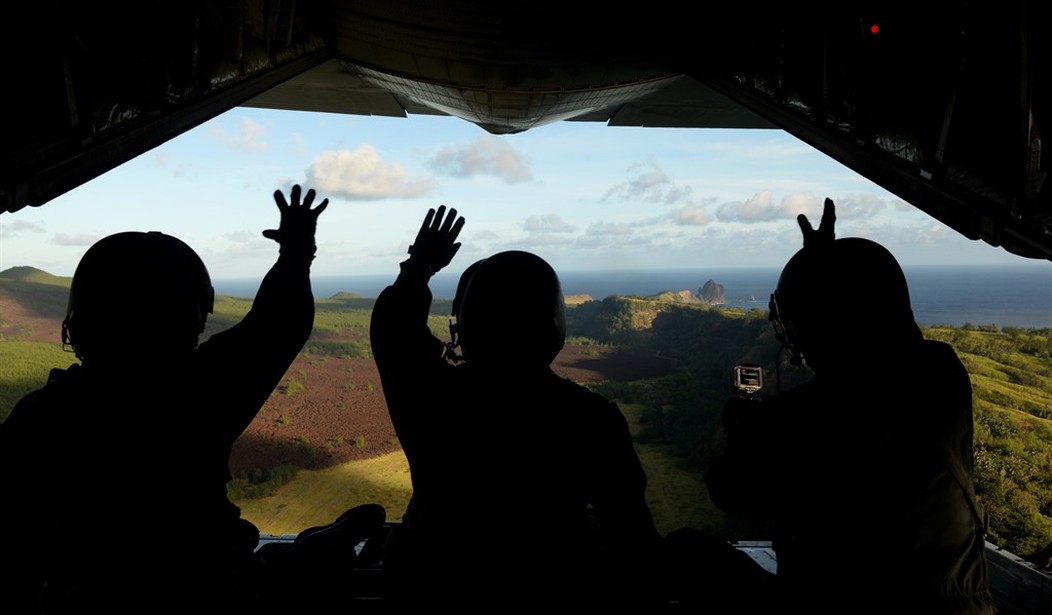The COVID-19 pandemic has interrupted traditions the world over, but one Department of Defense operation that has brought Christmas cheer and much-needed supplies to some of the most remote islands in the world since 1952 continued unabated.
Operation Christmas Drop looked a bit different this year, like most things, but the U.S. Air Force still managed to drop 64 bundles, amounting to more than 3,200 pounds of food, supplies, and toys, to Palau, an archipelago of more than 500 islands.
"This year is a story of hope," said Air Force Tech. Sgt. Lou Splichal, Operation Christmas Drop 2020 senior enlisted leader, reports the Defense Department. "To come here and show that we can still do this mission, which we are accustomed to doing but, moreover, ensure that it takes care of people, is at the heart of it all."
The DoD explained all the safety precautions that took place leading up to this year’s airdrop to "mitigate the risk of spread and transmission of COVID-19" to the islanders.
"The islands farther out may not see aid for an entire year, and OCD is the only opportunity for them to get that life-sustaining aid, specifically with some of the challenges associated with a global pandemic," Spitz said. "Not to say they're not being taken care of, but there's a unique advantage that OCD has using that space available tactical airlift to deliver humanitarian aid to these islands that really can't be replicated."
Recommended
Over the last six years, the Japan Self-Defense Force participated in the mission, which also serves as training for responses to natural disasters in the region.
The event provides readiness training to participating aircrew, allowing them to gain experience in conducting airdrops while providing critical supplies […]
Low Cost Low Altitude (LCLA) airdrop is incredibly cost-efficient and easy to apply across the global airlift community, utilizing readily available resources and repurposed personnel parachutes to build supply pallets at a fraction of the cost of other airdrop bundles. These pallets are dropped at low altitude to improve drop accuracy.
Demonstrating and executing LCLA drops alongside regional allies is just one example of the USAF actively pursuing and participating in interoperability partner training to increase Humanitarian Assistance/Disaster Relief operational capabilities while ensuring stability in the Indo-Asia Pacific region.
The capabilities employed during OCD are a unique method of delivery suited to the region. Coast Humanitarian Air Drop (CHAD) takes the LCLA capability to the types of environments seen in many places throughout the Pacific. Together, CHAD and LCLA represent a unique Humanitarian Aid/Disaster Response or wartime capability that enables the USAF and allied nations to rapidly respond anywhere in the Indo-Asia Pacific region. (Andersen Air Force Base)
"The impact that this operation has on the islanders — not on just Micronesia and Palau, but the level of care and appreciation from the people of Guam — is something you're not going to see anywhere else," Spitz said. "I don't want to be in a world where Operation Christmas Drop doesn't exist."
Operation Christmas Drop allows us to work with our allies and partner nations to deliver critical supplies to people throughout the Southeast Pacific. #KnowYourMil pic.twitter.com/d3n3ca1EM1
— Department of Defense ???? (@DeptofDefense) December 16, 2020
#DYK Operation Christmas Drop is the longest humanitarian airlift operation?
— Air Force and Space Force Recruiting (@USAFRecruiting) December 22, 2020
Since 1952, the @usairforce has held air drop operations each year during the holiday season that provides supplies to more than 50 islands throughout the Pacific. Now THAT’S the holiday spirit! ?? ? pic.twitter.com/uvIjlTUNGw

























